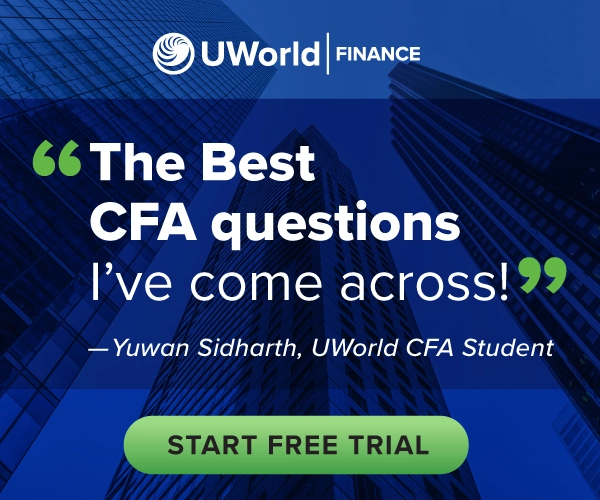by Rachel Siegel, CFA
A career change has led you to the CFA exams. Or maybe you are already working in finance, but you need some cred. Or perhaps you don’t want to have to live like a graduate student anymore. Here you are, with your liberal arts degree, walking into a CFA exam study group full of people who already know what a standard deviation is, already have their calculator steps down, and already earn more in a year than you do in five. Relax, you too can pass the CFA exams and become a charterholder. You’re smart, you know how to study, and you’re determined to achieve your next career goal. Here are ten tips to help you get there:
1. Acknowledge Your Ignorance
You are starting a bit behind, compared to someone fresh out of an investment banking internship. Nothing you can’t overcome, but don’t kid yourself: you’ve got some extra work to do.
2. Get the Right Calculator and Learn How to Use It
When calculations are involved in answering exam questions, the more fluent you are in using your calculator, the more time you save on the exam. And time is everything. Learn all the calculator functions, getting the basics down first, and then the more complicated formulas as your study progresses. As with learning any instrument, practice until it becomes muscle memory.
3. Learn the Vocabulary
You are likely to be a bit behind on learning the language of the investment industry. From the textbook vocabulary to the jargon of a trading desk, there’s a lot to master. Take the time to learn and use the language; don’t try to learn concepts “in translation.”
4. Brush Up on Math Skills
Sure, you’ll have your calculator, and you’ll be a whiz with it by exam day, but you can usually rule out at least one answer, if not two, just by eyeballing the math.
5. Read the Curriculum
The prose is not merely the filler between equations but an explanation of them. It also gives you the background, context, and often the evolution of the ideas you’ll be tested on, which will make them easier to understand. Quant jocks may grasp the math in the abstract, but you may find that the curriculum really brings it home.
6. Plan to Spend More Time on the “Basic Knowledge” Domains of the Curriculum, e.g., Quant and Accounting.
Besides taking up significant swaths of real estate on the exam, they are also fundamental knowledge. Vocab from accounting, for example, permeates the Equity and Fixed Income curriculum, and Portfolio Management relies heavily on Quant calculations. The more familiar you are with those basic concepts and vocabulary, the easier it will be to master the stuff in the advanced curriculum.
7. Don’t Skip Ethics
You might let your anxiety about the “hardcore” sections of the exam persuade you to put your efforts elsewhere. You might think that this is the “softest” part of the exam because it relies most on reading interpretation, where you have always done well. Sure, you may have a leg up with your strengths in reading and reasoning, but you still have to know the Standards. Don’t blow your chance to ace this section by neglecting it, especially since it’s a significant part of your overall score.
8. Review Some General Exam-Taking Tips
Liberal arts courses often require papers instead of exams, so maybe it’s been a while since you’ve had to take a timed, multiple-choice exam. But that’s precisely what this is: you cannot explain, argue, persuade, or ask for an extension, so be sure to take advantage of any available “multiple-choice exam taking” advice and best practices.
9. Practice in an Exam-Like Setting; Then Practice Some More
Maybe it’s been a while since you had to sit and deliver under pressure (see #8 above), but this is the major leagues. The more comfortable you can get with exam-like conditions, the more comfortable you will be on exam day and confident in your ability to pass the CFA exam.
10. Don’t Be Intimidated
Yes, some—maybe most—of the other candidates are probably starting a bit ahead of you, but remember, you only have to pass the exam, not surpass the other candidates. These exams are not scaled, so your absolute score determines your fate. Your performance is the only one that matters. Just put your head down and learn as much of the curriculum as well as you can.
The CFA charter is a great step in a finance career, no matter your starting point. And passing the exams is possible, even from the “back” of the field. It’s a commitment well worth making, but be sure to give yourself every possible advantage. Good luck! I know you can pass the CFA exam.
About Rachel S. Siegel
Rachel S. Siegel, CFA is a respected editor for financial firms and professionals, academic journals, book authors, and courseware providers. She has worked with such diverse clients as Betterment, Ernst & Young, Bloomberg Exam Prep, Adapt Prep, Harvard Business School, CFA Institute, the US Federal Reserve, and Oxford University Press, and with academics across the social sciences on journal articles, dissertations, and books. Siegel is the author of Personal Finance 3e, a college-level text on personal finance, which was shaped by over two decades of teaching finance, accounting, and economics as a full professor at Northern Vermont University. She has a BA in English and an MBA, both from Yale University.
If you are prepping for an upcoming Level 1 CFA® exam, check out these top 5 pointers for the Level 1 CFA exam. And if you want to take your test-prep game to a whole new level, click here for our FREE trial.





